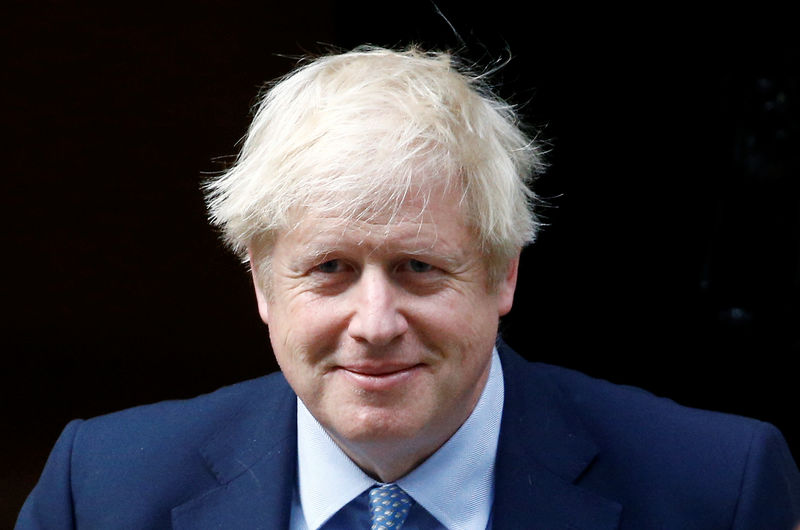LONDON (Reuters) - Prime Minister Boris Johnson's plans to cut income and social security taxes will prove costly and are not the best way to help low-earning families or promote growth, a top think-tank said on Friday.
Johnson plans to raise the earnings threshold at which people pay the higher rate of income tax to 80,000 pounds from 50,000 pounds currently, part of an economic strategy widely seen as a pre-election sweetener.
The Institute for Fiscal Studies (IFS) said this would cost the government 8 billion pounds a year.
Johnson also wants to raise the threshold at which workers pay social security contributions -- known in Britain as National Insurance Contributions (NICs). Each 1,000 pounds increase in the threshold would cost 3 billion pounds, the IFS said.
"If you are going to spend that much cutting taxes for those on high incomes or supporting low earners, you could find much better ways of doing so than the policies proposed by the prime minister," IFS research economist Xiaowei Xu said.
"Cutting NICs to help low earners is a particularly blunt instrument," she added. Instead, the government should consider raising work allowances in the welfare payments system.
"Doing so would also tend to strengthen the incentive to be in paid work for some of the lowest paid," the report said.
In August, finance minister Sajid Javid said he wanted to see lower taxes but at a level which would pay for public services.
"We want to set them at a rate where we are trying to maximise revenue, and that doesn’t always mean that you have the highest tax rate possible," he said.

A Treasury spokesman said any decisions on tax changes would be for Javid to take as part of the budget process.